Home ›› 22 May 2022 ›› Front

Ensuring smoother supply of products, tackling the impacts of Russia-Ukraine war and LDC graduation will be key challenges for the government in the budget for Fiscal Year 2022-23.
Economists and business leaders made the remarks at a pre-budget discussion titled “Economic Challenge and the Upcoming budget for FY23,” organised by The Business Post at its office auditorium in the capital on Saturday.
Presided over by The Business Post Editor Mohammad Golam Sarwar, the discussion was moderated by Executive Editor Nazmul Ahsan.
Speakers added that the government must address the above-mentioned issues in the next budget to help keep the production going smoothly, the supply chain stable, and have better control over import expenses.
Attending the discussion as chief guest, former finance advisor to the last caretaker government AB Mirza Azizul Islam said, “Keeping the inflation under control is a big challenge. The country’s current inflation rate is a result of the ongoing global situation – especially the Russia-Ukraine war.
“The war triggered a fuel price hike, which in turn caused the rise in essential commodity prices.”
He continued, “When inflation rises due to the global economic situation, we cannot control it using internal policy. Under such circumstances, the government has to provide cash support to victims through the social safety net programmes.
“But there are problems as those who need the aid are not getting it, and misappropriation is prevalent during the disbursement process. Besides, the allocation is not enough.”
To address the issue, and lessen the people’s burden caused by the rising inflation, Azizul recommended an increase in allocation for this particular purpose in the next budget, and proper coverage of the social safety net.

‘Tax-to-GDP ratio must go up’
Raising questions about the numbers in budgets, the economist said, “Every year, Bangladesh reduces the size of its initial budget through revisions, and it is even less in reality. We should not have such a tendency.
“Instead of reducing the budget size, we should improve our spending capacity. Bangladesh has the lowest government expenditure among all South Asian nations”
He continued, “If the revenue does not increase, expenditure will decrease. The tax-to-GDP ratio is 22 per cent in India and Nepal, and 15 per cent in Pakistan. In Bangladesh, the ratio is only 10 per cent, and we have to increase this figure.
“Those who pay taxes are pressured, but half of the people who have TINs do not submit tax returns. We need to look into the matter as to why these people are not paying taxes.”
Adding that the unemployment rate is now higher among the educated people, Azizul said the next budget should take adequate measures to address the issue. The government should also take steps to resolve problems with funding and issues in the capital market.
He then said, “Bangladesh has been lagging behind in the ease of doing business indicator. However, the Bangladesh Investment Development Authority’s (BIDA) “One Stop Service” has improved.
“Though we have made some progress with individual investors, problems remain regarding the institutional investors. The upcoming budget should have guidelines centring this issue.”
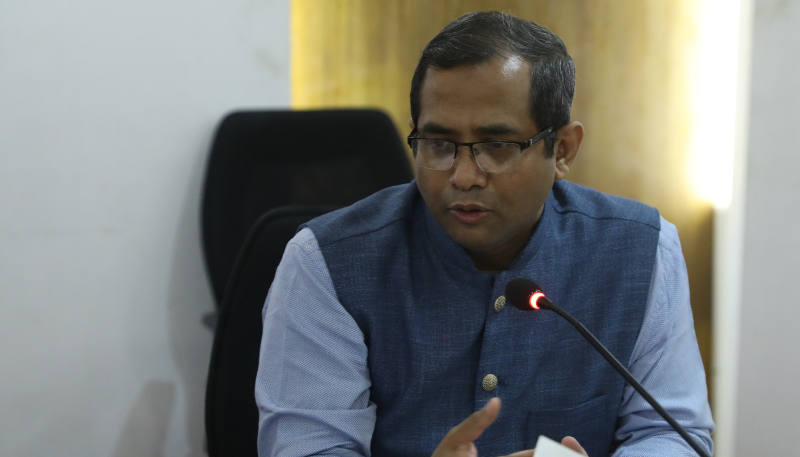
‘Increase monitoring in kerb market’
Centre for Policy Dialogue’s (CPD) Research Director Dr Khondaker Golam Moazzem said, “Bangladesh was showing good progress after emerging from the Covid-19 crisis, and business communities were interested in investing.
“But since then, the supply chain has been disrupted, while expenditure has increased. Due to the Russia-Ukraine war, we are still facing a fuel price hike and supply shortages.”
He continued, “We are facing a challenge with the balance of payment. Bangladesh’s exports have increased, but import expenditure has grown even faster. We can cover the gap with remittance and foreign loans, but there are challenges here too.
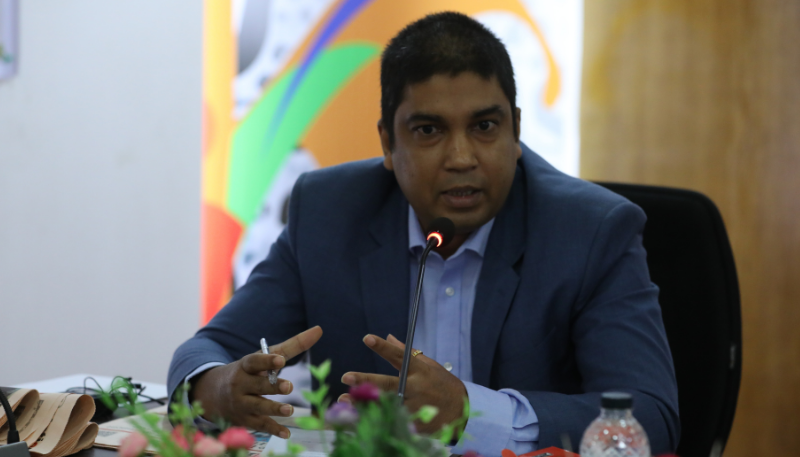
“The foreign exchange market will remain volatile for the next few days. The central bank should take logical steps to keep the USD rate stable. The USD price in the kerb market is now higher. If necessary steps are not taken, remittance through the Hundi system will increase.”
The authorities concerned should increase monitoring in the kerb market, he added.
Dr Moazzem continued, “The next budget should have effective steps to tackle the supply shortage of commodities. The crises triggered by inflation are gradually rising. Currently, food inflation in the country has decreased, but non-food inflation has increased.
“How can this happen? The trend to keep inflation around is a wrong move.”
He then said, “Inflation means that in reality, the prices will go up. But now it is a question of whether there are goods available in the markets. The government should take a firmer stance to ensure smooth supply of goods in the market. Duties and taxes can be lowered if necessary.
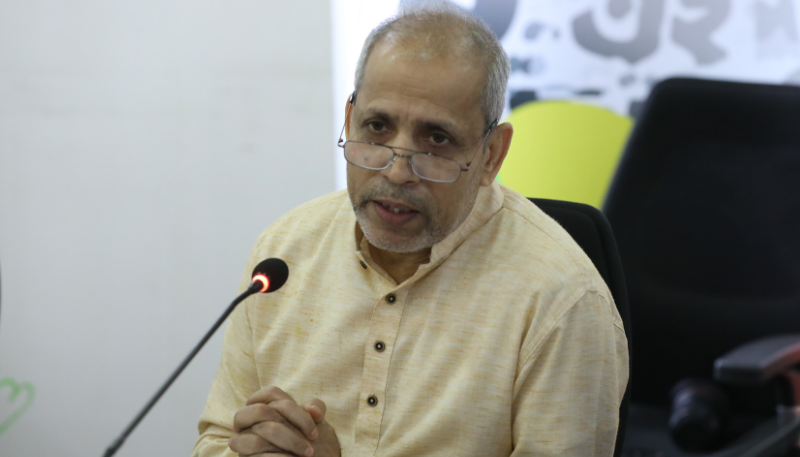
“The decision to keep interest rates at a fixed level is damaging the loan sector. It is not profitable for banks to disburse loans to the small and medium enterprises (SMEs) at 9 per cent interest rate. This has been discouraging the banks from disbursing loans to SMEs.”
The next budget should include steps centring the interest rates to help support the SME sector.
Dr Moazzem added, “The government should expand the social safety net in the next budget. Especially, the food supply for industry workers should be increased, and aid should be provided to the poor and people with a very limited income.”
Discussing ways to boost employment opportunities, he said, “The government should provide more facilities to the private sector to help create more jobs. Besides, government projects – where there is an opportunity to boost employment – should be prioritised.
“The government should introduce region-based products. The lawmakers will put more pressure on smaller projects ahead of the election, but the main focus should be on projects that can generate employment opportunities.”
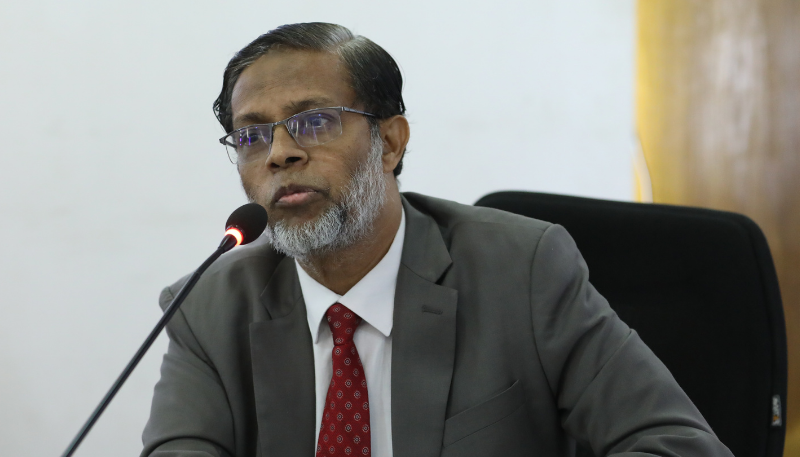
‘Implementation target must be realistic’
Former chairman of the National Board of Revenue (NBR) Abdul Majid said, “The three key challenges for the next budget are tackling the Covid-19 pandemic, Russia-Ukraine war and LDC graduation.
“The budget for FY23 should be planned keeping in mind the above mentioned challenges.”
He continued, “We need to target a three-year rolling system. The ADP is implemented 45 per cent in nine months, and the rest in three months. The next budget should have suggestions and the opportunity to introduce changes in this regard.
“The budget implementation target must be realistic, and the quality of implementation must be improved further. Even if an implementing agency fails to finish a project in time, steps should be taken to keep the allocation available the next year, so that they can finish work.
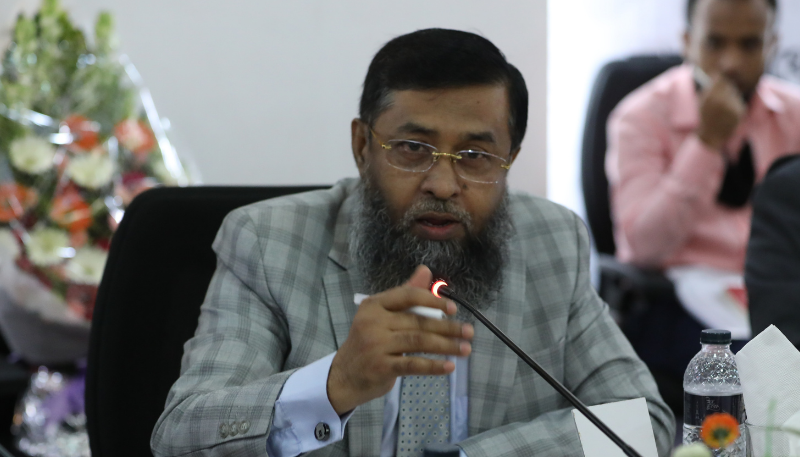
‘Focus more on education, research’
Speaking at the event, Research and Policy Integration for Development (RAPID) Executive Director M Abu Eusuf said, “Bangladesh must focus more on education, research and social safety net in an inclusive way in the upcoming budget.
“This will help the country combat the global supply chain disruption, and the economic strain triggered by Covid-19 crisis and Russia-Ukraine war.”
He then said, the government should think beyond the annual average economic growth, and instead consider inclusive measures to sustain the development and tackle Bangladesh’s LDC graduation.
“At the same time, in the current FY, we have not seen the appropriate budgetary allocation to reduce inequalities among the four crore students who suffered learning losses due to the Covid-19 pandemic.”
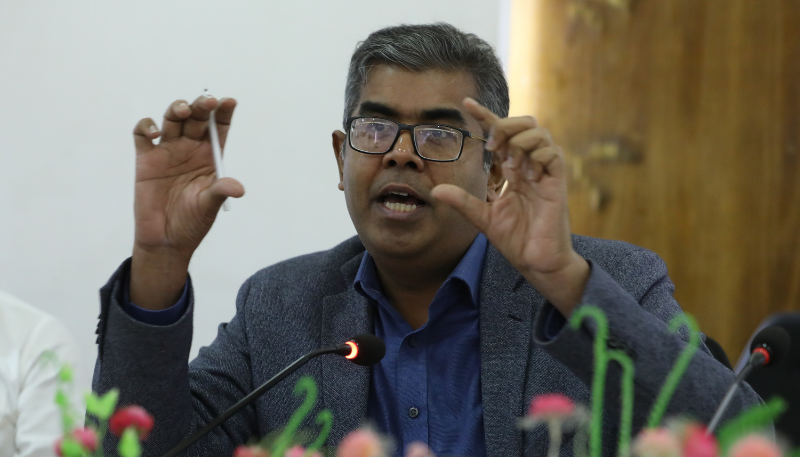
Eusuf recommended the government to pay attention in the upcoming FY to create more employment and address the gap between the education and employment sector requirements.
He added, “Bangladesh makes a large combined budget in technology and education. However, we request a separate budget for the education sector every year, which should be 20 per cent of the total budget or 4 per cent to 6 per cent of the GDP.
“The budget for education has been hovering around below 2 per cent.”
As per a Bangladesh Bureau of Statistics (BBS) report, Bangladesh spends only Tk 700 per capita in the education sector, which is a very small amount. At the same time, the allocation in research is quite low compared to the requirement, Eusuf mentioned.
He then pointed out, “The number one challenge in our country is inequality, which is gradually increasing with the rising GDP, per capita income and poverty reduction.”
Md Rashedul Karim Munna, managing director of Creation Private, said, “We will not be able to reap the highest benefits of jute only by exporting sacks. We are mostly exporting raw jute and yarn but the exports of value added products are very small.
“However, India, Pakistan and other countries are making value-added products by importing jute from Bangladesh, and earning more money than us. This is happening because of our lack of enough research.
“We need technology, but our policy does not have enough support for it. Compliance would be the next issue for the export sector, and its needs huge investments. I urge the government to provide adequate policy support in the national budget on this matter.”
‘Complex taxation, harassment big barriers’
Bangladesh Knitwear Manufacturers and Exporters Association’s (BKMEA) Executive President Mohammad Hatem said, “A complicated taxation procedure and harassment are big barriers for the business community, and they increase the cost of doing business.
“Raw material imports for the export-oriented RMG sector are out of VAT’s purview but exporters have to submit returns. Also, after online submission, they still have to submit a hard copy every month.”
He then asked, “We pay VAT while importing capital machinery, which we use to manufacture export or local goods after creating employment. So, why should we pay VAT since this process pays government indirectly when exporters pay tax?”
On the other hand, he added, there are complexities in the HS Codes in importing goods that in some ways discourage investment. “To attract investment and create jobs, the government should make the tax policies more business friendly.”
Former Federation of Bangladesh Chambers of Commerce & Industries (FBCCI) President Md Shafiul Islam Mohiuddin said, “The Russia-Ukraine war has broken out at a time when we, the world as a whole, are recovering from the impacts of the Covid-19 pandemic.
“We don’t know where reality is headed. We are part of the integrated world, and this whole situation is impacting our economy.”
Pointing out that the product prices have gone up in the country due to the supply chain disruption, Mohiuddin said, “We do not know what is actually going on behind the scenes. Transparency and accountability must be ensured at all levels.
“The most concerning matter now are the rising gas and electricity prices. Our FDI [foreign direct investment] will decrease if these prices go up as per recent proposals.”
To attract more FDI, he recommended improving the ease of doing business ranking as well, and suggested making government policies consistent since inconsistency will only decrease investment.
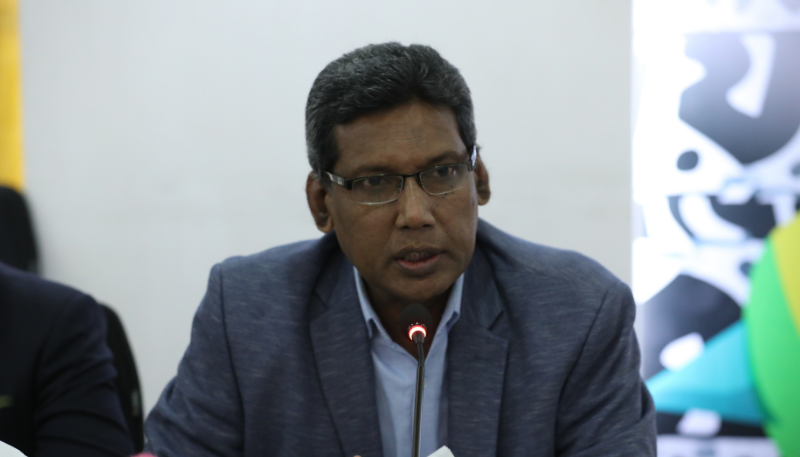
Reduce corporate tax to attract investment
Md Sayadur Rahman, president of the Bangladesh Merchant Bankers Association (BMBA) said that the present corporate tax rate for listed companies is now 22.50 per cent, but despite this, a reduced corporate tax rate will encourage good companies to get listed with the exchanges.
Consequently, if the number of listed companies can be increased, the government's total revenue collection will also go up, he added.
The BMBA President also said that there is still a lack of good companies with strong fundamentals in the capital market. So, I propose reducing this tax rate to 15 per cent.
Sayadur also demanded of the government to cancel the double taxation on dividends.
Speaking on the occasion, Richard D' Rozario, president of the Dhaka Stock Exchange Brokers’ Association of Bangladesh (DBA), said there are huge challenges in our country’s economy with the world economy. We should now be cautious and make a defensive budget, which will encourage entrepreneurs.
He said that if the corporate tax rate is reduced, then transparency would be ensured in the accounts of such companies side by side, and revenue collection would be increased further.
He urged offering the money whitening facility for stock business without any question to increase cash flow in the capital market.
DBA President said that the capital market would be strengthened next year if the black money whitening scheme was available in FY23.
The initiative will increase liquidity in the capital market. The dynamics of the stock market will then increase. "Industrial and economic development will take place," he said.
Richard also said preventing money laundering and investing in the country would help the government’s revenue grow.
The reduction of corporate tax to 15 per cent for listed companies will encourage many more companies to go public, and the government's revenue income will also be enhanced.

Khairul Majid Mahmud, director of the Dhaka Chamber of Commerce and Industry (DCCI) and Managing Director of Caldwell Development Limited, said, the upcoming budget should focus on timely strategies to fine-tune the business environment for the inclusive private sector and economic growth considering the current economic transition and global challenges towards the much-needed economic transformation.
A pandemic has resulted in 32.4 million new poor and 5 million job losses by 2021. safety budget has been over Tk 1 trillion at a growing pace in the last two budgets but does not end this vulnerability, he said.
Bangladesh, like Sri Lanka, suffers from a dual deficit. The country's trade deficit reached US $25 billion in the first eight months of FY22, representing a 9.25 per cent increase over the previous fiscal year.
He also said that the declining value of the Taka against US Dollar to Tk 87.50 and real effective exchange rate to Tk 114 become huge concerns. FDI has slightly recovered over the last fiscal year by 15 per cent to $2.89 billion though growth trend is inadequate.
"Our corporate tax rate is not competitive as it is higher than the EU, US, and Asian averages." The DCCI Director said it is also 10 per cent higher than that of Vietnam, Cambodia, and Thailand, as well as 6 per cent higher than many of their South Asian peers.
‘Unemployment more acute in rural areas’
Bdjobs.com CEO AKM Fahim Mashroor said, “Among those who are unemployed, nearly 50 per cent – 60 per cent of them are fresh graduates. The unemployment rate is much more acute in rural areas. But the social perspectives are not still recognised there.
“We can create a 30 per cent quota in the BCS for vocational and technical students as most of the graduates are entering the industries without acquiring the required skills.”
He then recommended, “If any company hires a fresh graduate, the government can give internship allowance for the employee or give at least 50 per cent – 60 per cent of the salary for one year or at least provide tax benefits to the company.
“For skill development, the industry should engage more with government schemes. A budgetary mechanism is needed for this matter.”
Fahim added, “In our country, we have almost no connection between the banks and SMEs. The central bank has introduced a 9 per cent interest rate on loans. But the banks are only disbursing loans to big companies.
“SMEs cannot afford a loan at this interest rate, as it does not go with their operating costs. According to Bangladesh Bank’s loan policy, SMEs must have trade licences to get loans but that is impossible for at least 90 per cent SMEs.”
‘Proper budget implementation a must’
“Size of the budget will be bigger, which is usual. But we’ve to think about the proper implementation of the budget,” said Mohammad Golam Sarwar, the Editor of The Business Post, while presiding over the roundtable.
“We are lagging in ease of doing business. As a result, we are not getting desired Foreign Direct Investment (FDI), as well as domestic investment. To attract investment, we have to remove bottlenecks in doing business,” said Sarwar.
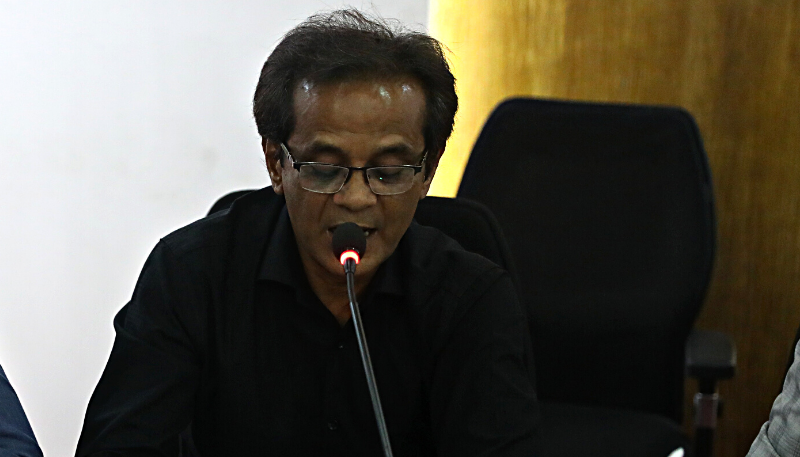
“On the other hand, completion of a project on time is very important to reap the most benefits from the investment,” he said.
Taking the present global economic crisis caused by the Russia-Ukraine war, the Covid-19 pandemic, and Bangladesh’s achievement in economic and social issues into account, the government should announce a defensive budget for the next fiscal instead of an aggressive and political one, he added.
Sarwar also urged the government to ensure the supply of essential and other goods to keep inflation under control.